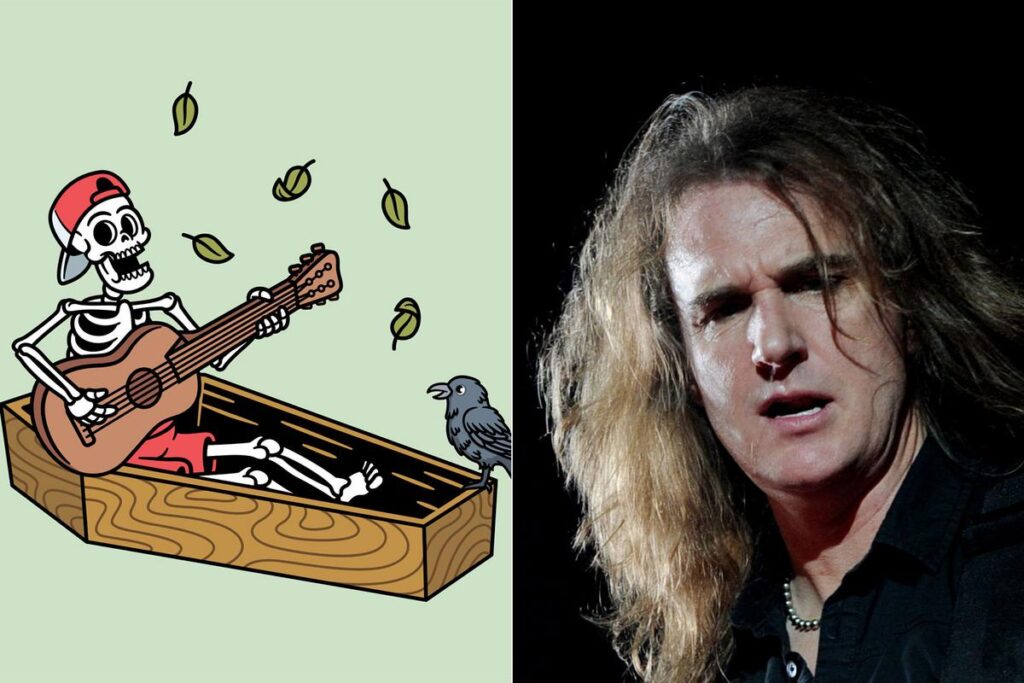
David Ellefson Also Believes ‘Rock Is Dead in America’
You can add former Megadeth bassist David Ellefson to those siding with the idea that rock is dead in America.
The musician not only said as much in a recent interview with Border City Rock Talk, but he also revealed that his belief in that statement is why he’s toured more overseas than in the U.S. in recent years.
Why David Ellefson Feels Rock Is Dead In America
Yes, the “rock is dead” argument has been shared by Gene Simmons and reiterated by the musician frequently over the last decade, but he’s not alone in making the argument. Ellefson even addressed Simmons in his comments on the matter.
“Rock is dead in America — it really is,” commented the bassist (as transcribed by Blabbermouth). “And I know people will lambaste me for saying that, but it is. When Gene Simmons said it, everybody hated him for it, but he’s right. Unless you’re an established band, unless you’re Linkin Park and Metallica and KISS and Slayer, whatever, to start a new rock band — kids aren’t into that shit. They’re into Facebook and Tesla. Yeah, their lives are on their phones. Being a rock star is not cool anymore, like it was for us growing up. So, if you’ve got it established, you can keep it working.”
In fairness, Simmons’ “rock is dead” argument was more about which younger bands are the new Beatles, measuring up to the standards of rock’s glory days and having the music that transcends and resonates enough that it transcends popular culture and becomes timeless regardless of generation.
READ MORE: Why Gene Simmons Claims of ‘Rock Is Dead’ Is Dead Wrong
But Ellefson uses the “rock is dead” argument more to explain the genre’s place of importance in the U.S. as compared to how it’s viewed in other countries.
He continued, “For me, I enjoy South America, Latin America, [where] they love rock and roll. Asia, Australia. So you leave America and, man, rock and roll is very much alive and well. They champion the legacy stuff, they like new stuff. There’s a lot more.”
“I did a record for Napalm Records, and they had a bunch of new groups,” he added. “Jinjer had just come out. There’s all this cool new stuff, as well as me and K.K. Downing, and legacy artists were putting records out. So I just find that it’s more supportive. And you look at the statistics, like the Spotify numbers, you look at that globally, outside of America, and it’s just stronger. It’s just a different culture. It is what it is.”
“So I play here in America, of course, too, but I find that outside of the USA, sadly, is where kind of the bread and butter is for that, as far as the bigger interest and the abilities to still keep playing and touring. And they appreciate it. Especially going to a lot of these places in Eastern Europe, the bigger bands, even Megadeth, you’d play Warsaw, you’d play Bucharest, but you can’t go kind of deeper into the interior to some of these smaller places. And so when I do some of these smaller things, like ‘Bass Warrior’, I can be a lot more nimble and I can kind of go through the cracks and crevices and really go. People, yeah, they love it, man. Where we are here in North America, you get in your car, you drive down a freeway, you go to another town far away to see a concert. It’s not that easy for other people in other cultures. So I feel a privilege to be able to take my music to them.”
Ellefson will be back on tour in 2025. He recently announced March dates in Europe for his “Bass Warrior” trek.
David Ellefson Speaks With Border City Rock Talk
The Best Hard Rock Album of Each Year Since 1970
Going year by year, looking at the best albums in hard rock since 1970.
Gallery Credit: Loudwire Staff